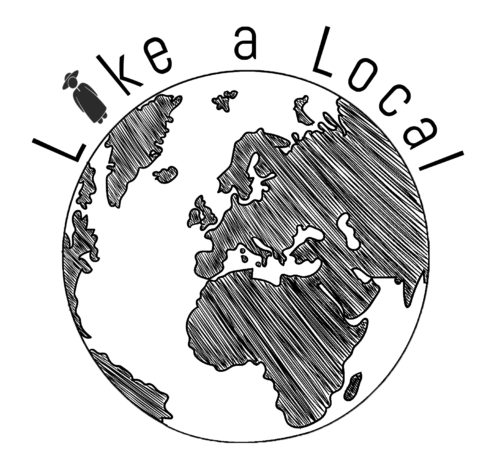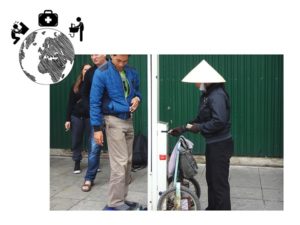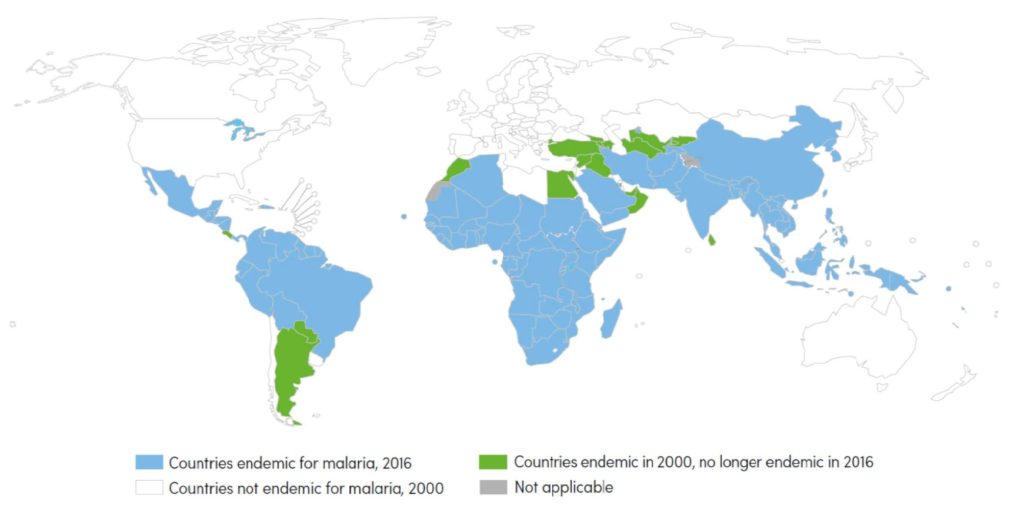What’s on this page?
Find here some useful tips and advice when travelling around the world to help you stay healthy and avoid medical problems on the road.
Travel Health & Medical Advice page content:
- Food Poisoning
- Humidity & Infections
- Avoid Bed Bugs
- First Aid Kit
- Should I take Malaria Tablet for an ATW trip?
Food Poisoning
I guess everyone has heard of the Delhi belly. Well, it doesn’t only happen in Delhi. This is a classic, it never happened to me in almost 3 years but still a classic for many travellers. As I already mentioned in the Travel Food Advice section, eat local but go easy the first days (to get used to it) and make sure it is well cooked.
Watch out the following:
- Western food (less volume made, not as fresh, ingredients saved and stored too long, imported, re-heating things, etc.)
- Cold salads (raw food, salad washed in local water)
- Ice cubes in drinks (water quality issue)
- Fruit juices (not well cleaned, not peeled, etc.)
- Hand-made ice creams
- Buffet (never know about food conservation and the time it has been sitting there)
- Meat (I did enjoy some meat things in my trip and was fine but well, always more risks than vegetables)
Nb: wash your hands!
It sometimes doesn’t come from the food but just from you. There are a lot of bacteria around and many that your body is still not familiar enough with to properly deal with it. So you do need to wash your hands a bit more than back home. At least at the beginning, then your immune system will become stronger, like a local 😉
Humidity & Infections
Hot and wet, this is the situation in many exotic countries you might visit. Nothing too bad apart sweating so far, even quite a good thing for skin moisturisation.
Not as good when it comes to even small cuts or any kind of wounds you can have on the way. You travel rough like an adventurer, so you get few things all around your body. All fine, we all go through that but you need to properly consider each of them before they get infected (even a mosquito bite you scratched over and over can become trouble).
I don’t want to sound too extreme here but this is the main thing I have seen around the world. People ending up with dodgy stuff just because they let something small getting bigger.
Everything is there to develop infections: hot temperature, humidity, many (new) bacteria
Nb: stay hydrated
It does help with wound healing but it is important for many things (not mentioning kidney/bladder infections). It is hot, sunny, you do some exercise and you sweat like crazy = losing a lot of water (ah, and you drink alcohol too!)
Just drink water to stay healthy, drink a lot, it is good for many things!
Avoid Bed Bugs
Not sure if having its own category is too much or not as I personally didn’t have so much trouble with it but it happens often to many people and those things are annoying.
You won’t avoid them totally and you won’t always have the choice but you can try to avoid getting all your stuff infected:
- Check the place, under pillows, mattress, is there mould in the room? Blood stains from their last meal? Shit (yeah these things shit too)?
- Make sure your backpack doesn’t stay too close from the beds
- Sleep in your own travel sheet.
What to do if you get infected by bed bugs?
If you got beaten and you think they went into your stuff, the way to get rid of it is the heat. They apparently don’t live over 50°C so you can try that. I have seen travellers putting all their stuff in a black bin bag and leave it at the sun for a day or so.
First Aid Kit
Here it is a bit like your Travel Gears in your backpack, take half of the stuff you (your mum?) planned to put inside. Some things are useful when used often, the rest is just useless anticipation that can be bought pretty much anywhere.
So just take the essential. Basic medication is cheap and available in most parts of the world so don’t carry too much and buy on the way.
- Antibacterial hand gel (in case you cannot wash your hands before eating this delicious street food – for the first few days at least)
- A small mix of pills (just few, buy more there when needed): for the head, for the belly, for motion sickness (if you suffer from it), for allergy
- Plasters (again, can be bought everywhere)
- Blister plasters (it happens, you don’t want to get stuck because of that and good ones are not sold everywhere)
- Antiseptic/antibiotic cream (cf above about wounds getting infected)
- Lip balm/Vaseline
- Sunscreen (easily available everywhere but questionable products sometimes)
- Fixing kit: pair of small scissors, needle, tweezer
- Water purification tablets
- Condoms
If you have any prescription medicine or anything strong, bring all the prescription and tickets with you, in case you get check in a country they don’t really like some drugs.
Nb: No need for too many drugs or vitamins, etc. Eat well, drink and sleep are keys to keep a good health and have a resistant immune system to fight these new bacteria.
Should I take Malaria Tablet for an ATW trip?
The big question. I am not going to write a lot here but don’t worry, you will have plenty more to read about the question on other travel blogs.
I travelled for too long to be taking malaria treatment, it wouldn’t be healthy. Any respectable medical professional would tell you the same. So, except in very remote (days from any hospital) and highly infected zone, I wouldn’t advise travellers to take it.
- Protection not fully proven anyway
- Costs and annoyance of taking a drug on a daily basis
- Side effects (and some could be annoying, starting with the sun sensitive one, headaches, nausea)
Instead of taking Malaria tablets, here is the plan:
- Be careful in sensitive areas. Don’t stay uncovered after sunset, sleep with a mosquito net.
- Ask locals, they know the malaria situation, if it is that bad or not. I discovered when I was in Africa that some supposed to be highly infected zones were actually fine the time I was there.
- Have a box of Malarone tablets with you in case you feel you could have developed it, taking the drugs would give you extra days to go to the hospital.
- Have some Doxycycline tablets to be taken just for the most sensitive areas (this drug doesn’t need you to start taking the pills before arriving in the infected area, and just requires you to carry on taking it 1-2 weeks after leaving the area)
Don’t worry if you change your mind on the way, these pills would be easy to get in the infected areas. And cheaper, I bought mine in an official pharmacy in Africa, a fraction of the costs we get it in Europe.
Here is a map showing infected countries:
Credit: WHO World Malaria Report 2016
Check also the Travel Injections section for more recommendations of treatment before you go travelling.


